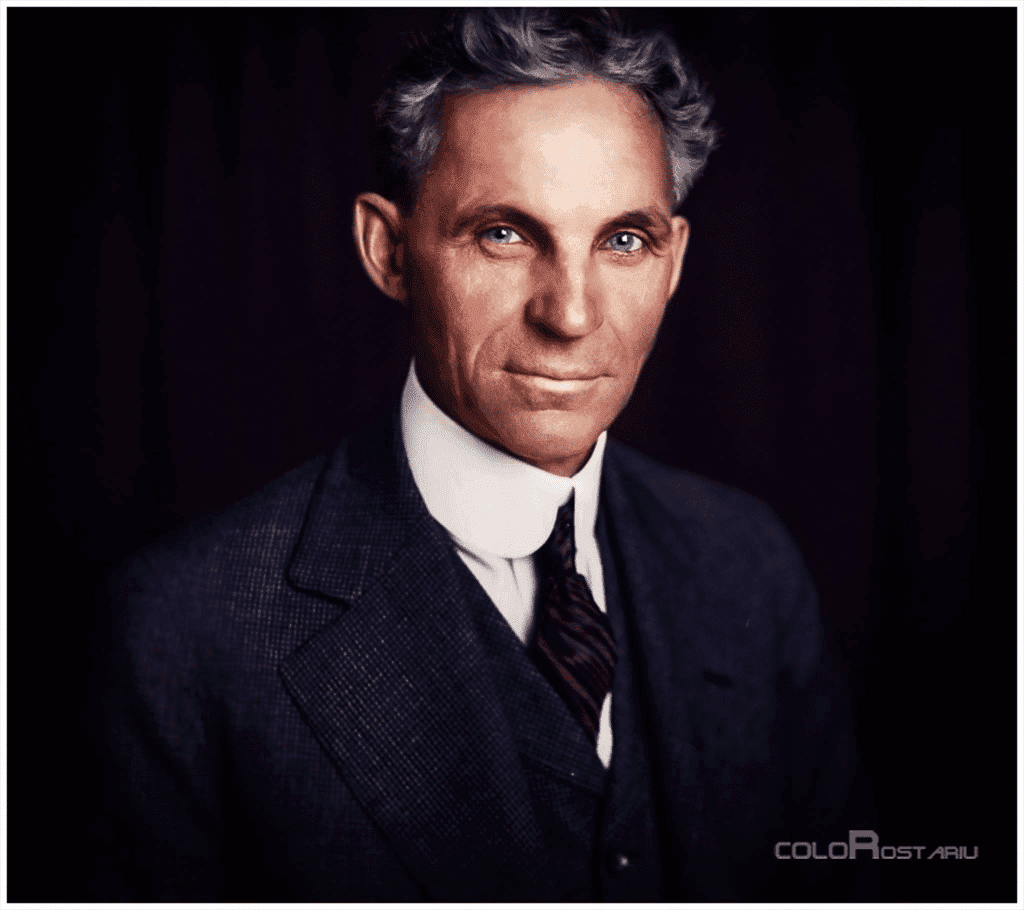Think new products, new jobs, a better future? Entrepreneurs are behind it all. Risk-takers, dreamers, and those who turn ideas into real things—that’s who they are. What’s the secret sauce behind the amazing achievements of these pioneering entrepreneurs? Is it ambition? Hard work? Something else entirely? History’s most successful entrepreneurs—we’ll look at them here. This article is full of useful lessons for current and future business leaders.
Table Of Contents:

- Get ready to meet ten business legends—entrepreneurs who changed the game. Industries were forever altered by these pioneers; their contributions are undeniable. Their legacies continue to inspire.
- 1. John D. Rockefeller: The Oil Baron
- 2. Andrew Carnegie: The Steel Magnate
- 3. The great Thomas Edison. The inventor—what a genius!
- 4. Henry Ford: The Auto Industry Pioneer
- 5. Oprah Winfrey: The Media Mogul
- 6. It was Sam Walton. Retail’s Big Changer
- 7. That’s Charles Schwab. Investing Made Easy.
- 8. It’s Tom Love. Play Travel Center Tycoon!
- 9. John H. Johnson: The Publishing Pioneer
- 10. It was Steve Jobs. The Tech Visionary
- What These Entrepreneurs Teach Us
- Entrepreneurship: It’s all about what comes next.
- Conclusion
Get ready to meet ten business legends—entrepreneurs who changed the game. Industries were forever altered by these pioneers; their contributions are undeniable. Their legacies continue to inspire.
Entire industries have been transformed by these individuals, and they’ve also created brand-new markets. Think of a tidal wave—that’s how much sway they hold. Perseverance, creative problem-solving, and achieving success—these are all lessons we can learn from their experiences. Want to be a better business person? Learn from the best! Studying successful business strategies is a great way to gain valuable knowledge, whether you’re a seasoned professional or just starting out.

1. John D. Rockefeller: The Oil Baron
John D. Rockefeller dramatically changed the oil industry in the late 19th and early 20th centuries. The very first American billionaire—who was it? That was John D. Rockefeller, thanks to his hugely successful Standard Oil Company, which controlled the entire oil market. Rockefeller’s business smarts and his vision completely revamped industrial practices and corporate organization. He raised the bar.
He controlled the market by swallowing up his competitors and also managing the entire supply chain –– from drilling to distribution. Controlling everything so precisely really paid off. Our efficiency improvements and cost reductions left our competitors far behind. Even though some people disagreed with his approach, his grasp of supply chain management and market dominance was undeniable.
Rockefeller’s impact was not confined to business. His later years were marked by incredible generosity; he truly changed the world. He gave a lot. It mattered. Education, medical advancements, and better public health were all areas he heavily funded. Because of this generosity, we have the University of Chicago and Rockefeller University—two schools that are still important today. People across the board are seeing real improvements thanks to them. It’s made a huge difference.

2. Andrew Carnegie: The Steel Magnate
Andrew Carnegie forged a colossal empire in the steel industry during the late 19th century. He came from Scotland, poor as could be, but look at him now—one of the richest guys on the planet! Carnegie was an early adopter of vertical integration on a massive scale within Carnegie Steel.
By owning the raw materials, handling transport, and running the mills himself, he had complete control. This let him manage expenses and output incredibly well. Using the Bessemer process for steel production, he quickly boosted his company’s success. New technologies were his thing. His business plan? Lower costs, better production. Simple as that.
Carnegie felt strongly that rich people should use their money to help others. This belief, explained in his “Gospel of Wealth,” led him to spend his later years giving away huge sums to build libraries, schools, and programs for peace. Modern philanthropy owes him a huge debt. People are still inspired by his example of giving.
3. The great Thomas Edison. The inventor—what a genius!

Edison’s genius extended beyond invention; he was a shrewd entrepreneur, skillfully turning his ideas into profitable ventures. Think of the lightbulb—a technological marvel, but also a product cleverly marketed to consumers. Modern life? He pretty much invented it. Over 1,000 patents were to his name; a truly impressive feat of innovation and hard work. Product development and marketing? He was a pro.
While the incandescent light bulb is arguably his most celebrated invention, its success was supported by his development of an entire electrical power generation and distribution system. Edison’s true entrepreneurial genius was perhaps best demonstrated by his establishment of the first industrial research laboratory in Menlo Park, New Jersey. Invention became a systematic, team-based process. The goal? Innovation is our lifeblood; we’re always coming up with something better.
Edison’s companies, like the one that became General Electric, brought electricity to entire countries. Edison’s special qualities? What were they? Practical inventions were his forte; he also possessed a keen business mind. This made him very successful. He understood that innovation without application and market adoption held little business value.

4. Henry Ford: The Auto Industry Pioneer
Henry Ford did not invent the automobile, but he was the entrepreneur who made it an affordable commodity for the average American. Henry Ford’s company used brand-new manufacturing techniques. The implementation of the moving assembly line dramatically reduced production time and costs for the Model T.
The car industry was never the same after this game-changing mass production technique. It became a worldwide manufacturing standard. Factories worldwide adopted its efficiency. Ford’s decision in 1914 to offer a $5 workday was another groundbreaking move. Factory workers back then earned far less than his employees. This high wage—more than double the average—let his workers buy the very cars they made, boosting the American middle class.
Ford made cars cheaper, built them the same way each time, and focused on making a lot of them. This was their plan to sell to everyone. American transportation and manufacturing were revolutionized by his early work; however, his later leadership faced significant backlash. This was a shame, because his early work was so groundbreaking. The early success? It left an undeniable mark on our country’s history. Think about the ripple effects – the changes that still resonate today. Market success? Operational improvements? His research proves they’re a game changer. Better operations equal a bigger lead.

5. Oprah Winfrey: The Media Mogul
Oprah Winfrey constructed an influential media empire from very challenging beginnings. A difficult childhood? She turned that into a springboard to global leadership. That’s impressive. For 25 years, Oprah’s talk show connected with millions each day. Daytime TV was never the same after this; it showed a new, caring side.
Oprah’s entrepreneurial journey did not stop with her highly successful talk show. She demonstrated astute business acumen by expanding her brand into Harpo Productions, O, The Oprah Magazine, film production, and eventually the Oprah Winfrey Network (OWN). She builds brands exceptionally well. She knows her audience and always shares inspiring messages about self-improvement.

Her work benefits women and children everywhere. She’s a powerful force for good globally. Education and well-being are her main charitable concerns. Knowing your audience, building a strong personal brand, and branching out into different businesses—that’s the Oprah formula for success. Real communication is where it all starts. Likeable and trustworthy? That’s the winning combination behind her thriving enterprise. Customers respond to genuine connection, and that’s what she delivers.
6. Sam Walton: Retail’s Big Changer
Sam Walton changed retail forever when he started Walmart. His vision was to bring discounted goods and wide selections to smaller towns and rural communities, an underserved market at the time. Low prices, smooth operations, and knowing his customers: that was Walton’s winning formula.
Smart supply chain management, early use of inventory technology, and a serious drive to cut costs—that’s his winning formula. Walton’s big stores sold a ton of stuff, making shopping super easy. That famous “sunglasses at night” story? He clearly invests significant time in market research and analyzing his competition; this shows in his work.
He valued frugality, hard work, and treating his “associates” well. Our company’s foundation? A commitment to both great customer service and always striving to do better. Walmart expanded a lot under his leadership. His retail game was strong; the results speak for themselves.

7. That’s Charles Schwab. Investing made easy.
Investing became easier for everyone, thanks to Charles Schwab. He challenged the established norms of the financial services industry by founding Charles Schwab & Co. as a discount brokerage firm in 1971. High costs used to keep many people from investing in the stock market. Fees dropped significantly thanks to this model.
Schwab put customers in charge. He kept things simple: clear fees, easy-to-understand lessons, and straightforward investment help. Putting customers first built amazing loyalty. Winning in this confusing and scary business? This was the key.
Customer service and efficiency got a huge boost from their early use of technology. They were the first to really do it—online trading pioneers. Millions benefited from Charles Schwab’s efforts; he made investing easier, improving financial knowledge and involvement. Better value and easier access? That’s his secret. Disrupting outdated business practices fuels significant expansion, benefiting countless individuals in their financial planning. This creates a ripple effect.

8. It’s Tom Love. Play travel center tycoon!
Long-haul truck drivers and highway travelers: Tom and Judy Love recognized a huge opportunity to serve them. They founded Love’s Travel Stops & Country Stores in 1964 with a single gas station in Oklahoma. This modest beginning grew into a nationwide network of over 600 locations, a leader in the travel stop industry.
Love’s success? It’s easy peasy! Customer needs? They’ve got it covered. They really know their market. Excellent service? Absolutely essential. Love’s has it all! Gas, food, snacks, truck repairs, and even showers. Professional drivers and travelers found this approach really useful because it was both convenient and reliable.
Location was everything for Tom Love. Smartly placing his business near busy roads, he focused on continuous improvement, directly addressing customer needs. This helped his business grow. Focusing on a specific group of customers really helped the company boom. Love prioritizes clean facilities and great customer service; this is fundamental to their brand.

9. John H. Johnson: The Publishing Pioneer
John H. A media company specifically for African Americans? That was Johnson’s groundbreaking Johnson Publishing Company. He founded iconic magazines such as Ebony (1945) and Jet (1951). Imagine the impact: publications became essential during the Civil Rights Movement and the years that followed. They gave Black people a platform; their culture and views reached many more people. Think of the impact on a young person reading a story of hope in a time of great turmoil. Imagine the power that felt in seeing one’s own experience reflected back in a powerful way.
African American readers weren’t getting the stories they needed, and Johnson saw this gap in the market. He made it his mission to fill it. Black culture, achievements, and important social issues were all celebrated and explored in his magazines—things often ignored by mainstream media. This required not only editorial vision but also innovative approaches to customer acquisition and advertising in a segregated society.
Building his publishing house wasn’t easy. Money problems? Social issues? He conquered them all, showcasing his resilience and business savvy. This guy was a force. Culture changed because of Johnson. His work sparked important conversations and boosted Black pride. Finding a special audience and making content just for them? His success? A solid mission and that’s it.

10. Steve Jobs: The Tech Visionary
Apple’s co-founder, Steve Jobs, left a huge mark on many industries. Think personal computers, animated films, the music business, and mobile phones—he changed them all. The Macintosh, iPod, iPhone, and iPad—all born from his focus on making things perfect and simple to use. Technology and elegant design: Jobs didn’t just combine them; he made them inseparable. He anticipated what people would want before they even knew it themselves.
Innovation, top-notch product development, and careful design and marketing were the cornerstones of his business plan. Jobs believed in creating “insanely great” products that were not just functional but also beautiful and delightful to use. Apple’s culture, built by him, prized imagination and keeping things hush-hush. This led to amazing product releases that everyone talked about worldwide.
Despite periods of adversity, including being ousted from Apple only to return and lead its most successful era, Jobs’s vision remained unwavering. Building a powerful brand and a system of linked products and services—that was his strength. He understood this completely. Technology, design, and global business all still show the mark of his original ideas. A strong vision and high standards really made a difference.
Here is a summary of these remarkable individuals:
| Entrepreneur | Primary Company/Contribution | Key Innovation/Strategy | Core Lesson |
|---|---|---|---|
| John D. Rockefeller | Standard Oil | Industry consolidation, supply chain management, efficiency | Strategic market control |
| Andrew Carnegie | Carnegie Steel | Vertical integration, cost reduction, Bessemer process adoption | Philanthropy, operational efficiency |
| Thomas Edison | General Electric (roots) | Industrial research lab, mass commercialization of inventions | Persistent innovation, intellectual property |
| Henry Ford | Ford Motor Company | Assembly line, mass production, $5 workday | Market accessibility, manufacturing efficiency |
| Oprah Winfrey | Harpo Productions, OWN | Empathetic media, strong brand building, audience connection | Authentic connection, value proposition |
| Sam Walton | Walmart | Discount retail model, efficient supply chain, customer focus | Customer value, scalability |
| Charles Schwab | Charles Schwab Corporation | Discount brokerage, financial service accessibility | Democratizing industries, customer empowerment |
| Tom Love | Love’s Travel Stops | Integrated travel centers for niche markets | Targeted service, customer convenience |
| John H. Johnson | Johnson Publishing Company | Media for African Americans, serving unmet needs | Identifying underserved markets, cultural impact |
| Steve Jobs | Apple Inc. | User-centric design, product ecosystem, innovation focus | Visionary leadership, product excellence |
What These Entrepreneurs Teach Us

These ten entrepreneurs, despite their diverse fields and eras, share several common characteristics that contributed to their monumental success. They all demonstrated an ability to see opportunities where others perceived only challenges. They weren’t scared to question the status quo; they took big chances, but they were smart about it.
A passion for innovation fueled their remarkable achievements; they were always seeking progress. Groundbreaking products, revolutionary business models, and the discovery of entirely new customer bases—these entrepreneurs did it all. They consistently outmaneuvered the competition by thinking differently. Problem-solving and forward-thinking are abundant in their stories.
Persistence in the face of significant setbacks is another recurring theme. None of these individuals achieved success easily or without failure. Obstacles? They had plenty: cash flow issues and people who doubted them. Yet, their resolve never wavered. Victory was theirs.
The Importance of Vision
A clear and compelling vision is fundamental for any entrepreneurial pursuit. Success? These leaders achieved it by setting clear goals and having a strong mission. Their companies boomed! They knew their purpose. Their vision was clear, and they shared it powerfully. The mission really grabbed everyone—workers, investors, and customers alike—they all wanted in on the action.
Facing hard decisions and uncertainty? Our vision? That’s what kept us on track. It was our North Star. When confronted with challenges or forks in the road, their core mission and long-term objectives helped them maintain focus. A well-defined business plan, stemming from this vision, often provided the roadmap for their actions and strategic choices.
Profit wasn’t their only goal. Lots of people hoped to make things better, boost society, or change the way things are done. Purpose gives you the oomph to keep going, even when things get rough. You can’t win without bouncing back from setbacks; that’s the truth.
Adapting to Change
The capacity to adapt to shifting circumstances is another vital lesson from these entrepreneurs. Markets shift, technology races ahead, people want different things, and the economy is always changing. Smart business owners change plans when needed; they’re ready to adjust.
To stay ahead, you’ve got to keep learning and exploring what’s new in the market. Industry changes happen fast! Lots of these leaders loved to learn; they were always searching for new ideas. Facing obsolescence, they chose to adapt instead of fighting progress.
Whether it was adopting new technologies, like Carnegie with the Bessemer process, or reorienting a business model to meet changing consumer demands, their ability to evolve was crucial. Because they could predict the future, they were always ready to profit from new opportunities. This kept them ahead of the game. High-quality risk management means avoiding the dangers of a set-in-stone approach. Consider this: being flexible keeps you safe.
Building Strong Teams
No entrepreneur achieves significant success in isolation. Smart business people understand the value of a strong team. Building strong teams came naturally to them. Their company culture? Expect groundbreaking ideas, tireless effort, and superior results—that’s what we’re all about.
Leadership was the secret weapon; it powered their victories. Motivated, inspired, and well-guided, the teams thrived under these entrepreneurial leaders. Their influence was profound. The environment encouraged creative thinking; employees felt valued and important; and everyone worked hard to achieve common goals.
Delegation and trust? Absolutely crucial to our success. Growth brought a realization: They needed to share the load and let others take the reins. To scale effectively and survive long-term, they had to nail two things: staffing key roles with the best people and building a strong organizational foundation.
Giving Back to Society

A notable number of these highly successful entrepreneurs became major philanthropists later in their lives, or even concurrently with their business activities. Their power and money came with a big responsibility to society. Education, science, healthcare, and social progress—all have thrived thanks to their kindness.
You can see what true business success looks like when you look at their commitment to charity. Financial wins? They boost quality of life; it’s that simple. They’re game changers. Many of them viewed their wealth not as a personal possession but as a resource to be managed for the public good, reflecting concepts now associated with corporate social responsibility and sustainable practices.
Inspired by these people, many business leaders are now considering their long-term influence, a legacy that extends past the usual measures of success. Helping others boosts a company’s image and makes employees happier—it’s a win-win! Carnegie and Rockefeller really showed the world what philanthropy looks like. Thanks to their kindness, today’s business leaders are where they are.
Entrepreneurship. It’s all about what comes next.
The business world is in constant motion; it’s always evolving. Creativity is booming! New technology is a huge part of why. Think self-driving cars, personalized medicine – the possibilities are endless! Imagine artificial intelligence, biotech advancements, quantum computing’s potential, and renewable energy. Entrepreneurs have a golden opportunity to build thriving, meaningful companies in these areas. Think big, think impact. The future is now.
Social entrepreneurship is really taking off. Many business leaders today have a two-part goal. Making money and tackling tough social and environmental issues go hand in hand. Think climate change, inequality, healthcare, and education – tough problems, right? Well, entrepreneurs are coming up with some pretty amazing solutions. Many are finding ways to make their businesses environmentally friendly from the start. This approach is beneficial to all parties. A smart move all around!
Global business: a landscape of great potential and considerable difficulties. Entrepreneurs can now access markets and talent pools worldwide, thanks to digital marketing and interconnected economies. Consider this. cutthroat global competition, a maze of international regulations, and the constant struggle of managing supply chains. Effective risk management is not just a good idea—it’s a necessity. Companies that ignore these risks do so at their own peril.
Securing funding, whether through bootstrapping, angel investors, or venture capital, remains a critical aspect. Effective financial planning and a well-structured business proposal are absolutely fundamental to achieving your goals. Without them, you’re building a house on sand. Without them, attracting investment and ensuring your company’s future is nearly impossible. In this hyper-connected age, your ideas need protection more than ever before. It’s just that important. Competition is fierce.
Aspiring business owners: These lessons will guide you toward success. They’re worth their weight in gold; truly indispensable.
For all those with big dreams and even bigger plans: Don’t reinvent the wheel! History is packed with examples of both brilliant successes and spectacular failures in business; learn from them all. A clear vision is the starting point; from there, build a comprehensive business plan. It’s a long haul, not a short burst. You’ve got to be committed and keep trying to succeed. It takes time. Change doesn’t happen overnight. It takes time.
Embrace innovation as a core principle and be willing to take well-calculated risks. Weigh your options; some risks aren’t worth it. Planning ahead really matters. Learn from any failures encountered along the way; view them not as definitive defeats but as opportunities for growth and refinement of your product development or business strategy.
Having a good network of professional contacts can make all the difference. Envision those who guide you, those you partner with, and those who could one day be your employers; these are all important connections. Team up with skilled, reliable folks. Seek guidance from those who’ve been there. Teamwork makes the dream work; let’s make it happen. Good networking creates chances you wouldn’t normally have. Collaborators and helpful resources are readily available to you.
Remain adaptable and commit to lifelong learning. Things change quickly in business. Entrepreneurs who want to stay on top of their game need to be students of their craft. They’re always improving, always learning. This continuous improvement is what separates them from the rest. Your success story doesn’t have to end with a sale. Build something that makes a real difference; a company with heart. How you leave and your future impact will matter a lot.

Conclusion
Learn from the best! Wisdom from the top: ten entrepreneurs offer valuable lessons from their journeys. Clear goals, constant effort, fresh thinking, and determination—that’s the winning combination, as these examples clearly demonstrate. Global issues? Creative businesses are stepping up. They’re not just reacting to problems; they’re creating innovative solutions that improve the world. Think of how many inventions and products have come from creative people!
Whether you are just starting your entrepreneurial journey with a new business idea or are an experienced business leader looking to refine your approach, there is always much to gain from studying those who have successfully navigated the path before. Think Steve Jobs, Bill Gates, or Oprah. Seeing what others have accomplished pushes people to aim high, follow their passions, and develop something truly unique. Think about it: what could *you* create? It’s influence spreads far and wide; you’ll see it everywhere. Today’s business strategies and leadership styles are still heavily influenced by those past examples.


